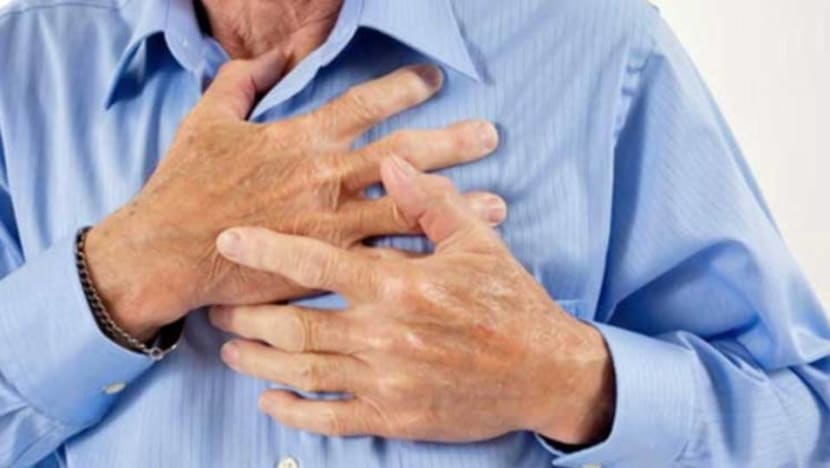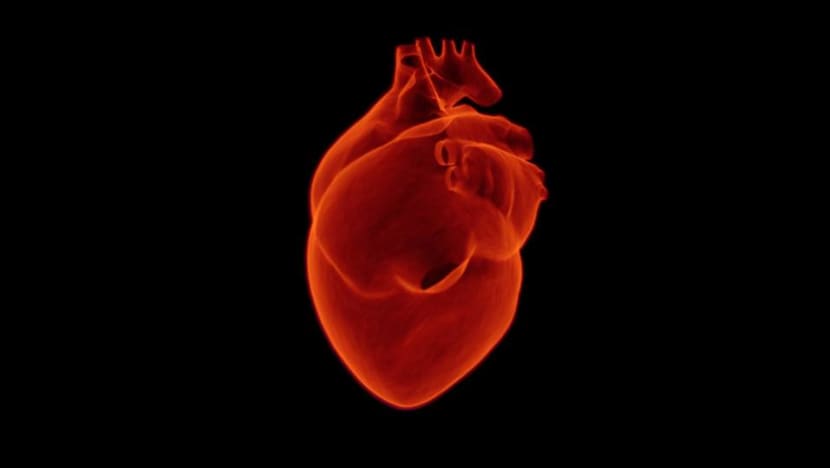commentary Commentary
Commentary: The silent heart attack, and why Singaporeans don’t realise they’re having one
People who suffer a silent heart attack don’t get help because they don’t realise they have a problem, says Nobel Heart Centre’s Dr Leow Khang Leng.

(Photo: Pixabay)
SINGAPORE: On a casual afternoon almost five years ago, Mark* arrived at his mother’s home for lunch. While she was cooking he lay down for a short nap, as he had been feeling very tired that day.
When his sister came to get him for lunch, she noticed that his body was “dancing” strangely. She tried to wake him, only to find Mark was unconscious and unresponsive.
She immediately called an ambulance. The paramedics were able to resuscitate Mark and he was rushed to the hospital .
Mark was 58, and had experienced a heart attack.
His extreme lethargy before the episode was his only symptom, and he had no history of heart problems, prior chest pain or any health complaint.
After his surgery, Mark made a miraculous recovery and is now back to his usual lifestyle, taking his medication regularly, and resting when he feels tired.
As scary as it sounds, Mark’s experience having a heart attack is not uncommon at all. In fact, seven out of 10 Singaporeans were unable to identify a heart-attack, according to a Manulife study conducted earlier this year.
READ: Commentary: Unable to look sideways? Unusual signs of diabetes often unnoticed, ignored or denied
THE SILENT HEART ATTACK
What do you think of when you think of a heart attack? A sudden pain or tightness in your chest, falling over or losing consciousness?
Those are the common symptoms that we tend to associate with heart attacks, backed up by what we see on television. However, there is also a type of heart attack that does not present these symptoms – a silent heart attack.
A silent heart attack describes a situation in which a patient may be having a heart attack, but experiences minor discomforts, seemingly unrelated symptoms, or sometimes no symptoms at all.

In many cases of a silent heart attack, patients may experience symptoms so mild and fleeting that they can get confused for a passing discomfort, or another minor illness, and thus ignore them.
For example, patients may feel light headed, nauseas or have symptoms of indigestion – all of which can be dismissed for other less serious illnesses.
Silent heart attacks are increasingly common today, accounting for almost half of all heart attacks. Beyond the dangers of not recognising the heart attack, patients with a history of silent heart attacks are also at higher risk of suffering from sudden cardiac death.
READ: Commentary: Salt, China’s deadly food habit
In a recent study, more than 40 per cent of patients who experienced sudden cardiac death were found to have scarring associated with a silent heart attack.
Even more interestingly, research from the American Heart Association has also shown that women more often display these different and less alarming cardiac symptoms compared to men.
As these patients may be unaware these symptoms relate to heart disease, it is easy to mistake something else as the cause.
A key issue for patients suffering a silent heart attack is that they take longer to reach a hospital or seek medical attention, as they simply do not realise they are having a heart attack. This puts them at much higher risk for complications such as heart failure or even death.
Today, cardiovascular disease accounts for almost one in three deaths in Singapore.
SIGNS OF HIGHER RISK OF A HEART ATTACK
When it comes to heart attacks, both men and women share the same risk factors, namely diabetes, high blood pressure, high cholesterol, smoking, a family history of heart disease and obesity.
However, men are at higher risk of a heart attack much earlier in life than women. Female hormone oestrogen offers women some protection from heart disease, at least until after menopause, when hormone levels drop significantly.

Patients who have diabetes are also more likely to experience atypical symptoms or no chest pain at all when having a heart attack.
Emotional and mental stressors can also increase the risk of having a heart attack. How someone experiences stress, and how they react to it can put extra strain on their heart.
In some cases, excessive stress can lead to an increased heart rate. With such conditions, the heart may not be able to pump blood effectively to the rest of the body, which can lead to heart failure and a sudden cardiac arrest.
Other highly stressed people may experience increased blood pressure and hypertension. In the long term, this may eventually lead to coronary artery disease, and an increased risk of heart attack.
READ: Commentary: Many who suffer from a swallowing disability keep quiet about it
Emotional and mental stress can also manifest in behavioural changes – overeating, for example, can lead to obesity. An individual with an unhealthy diet would, over time, develop high blood sugar and cholesterol levels.
Other patients may turn to vices such as smoking and drinking to cope with stress. All these unhealthy lifestyle choices will definitely add to the higher risk of someone getting a heart attack.

READ: Commentary: The dark underbelly of binge drinking among youths
READ: Commentary: Time to put a stop to drinking at airports
PREVENTING A SILENT HEART ATTACK
The most effective way to reduce a risk of a silent heart attack is the early detection of traditional risk factors such as diabetes, hypertension and high cholesterol.
Regular health screenings might help but more importantly, leading a healthy lifestyle is crucial, and this includes exercising regularly - at least 30 minutes of brisk walking five times a week, maintaining a balanced diet, reducing alcohol consumption and smoking cessation. If there have been certain risk factors identified, work with a doctor to get those under control.
Techniques that help manage stress will also go a long way in improving your overall health, Exercising, maintaining a positive attitude, and getting enough rest are good ways to deal with stress.
Relaxation and mindfulness techniques can also be practised in our daily lives – not just for physical health but mental well-being too.
*All names used in this commentary are pseudonyms.
Dr Leow Khang Leng is Consultant Cardiologist at Nobel Heart Centre, a member of Healthway Medical Group.














